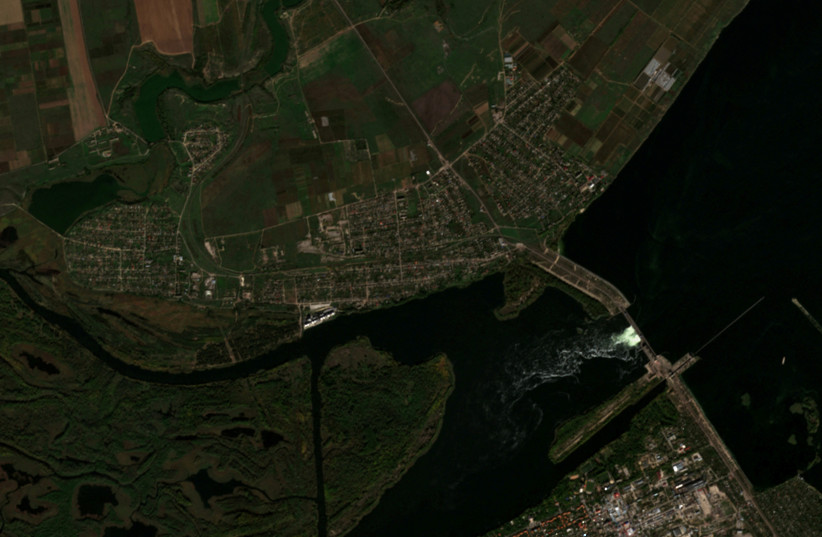Intense flooding caused by the collapse of the Kakhovka dam in eastern Ukraine is threatening to force most of the remaining 600-700 Jews in the Kherson area to leave, according to the city’s chief rabbi.
Rabbi Yosef Wolff told the Times of Israel that about 80% of the region’s Jews had already left before this week. About 20 Jewish families have been directly affected by the flooding so far, and they are taking shelter in Jewish institutions. Kherson’s synagogue has not flooded because it sits at a high elevation, 20 meters, or 65 feet, above sea level.
Russia and Ukraine are trading blame for the dam collapse; Ukraine claims that Russia blew it up to slow an upcoming Ukrainian counteroffensive in the area. Over 1,000 people on both sides of the Dnipro River have already fled their homes this week, but authorities say that the flooding could affect up to 40,000.
The American Jewish Joint Distribution Committee, one of a number of Jewish groups providing aid in the area, said that its main service center building was flooded and inaccessible as of Thursday, but workers were still serving 382 Jews, providing them with food, water and other supplies. They also transferred people’s computers, generators, food and other emergency materials to the Kherson synagogue.
“Everything that I had is now under the water,” said a JDC volunteer named Oksana. “My home is gone. My life is gone. I do not know how to live now.”

Chief Rabbi under Russian fire
Moshe Azman, one of multiple claimants to the title of chief rabbi of Ukraine, went viral on Thursday for a video in which he ducks for cover from Russian bombs while on an evacuation mission in Kherson.
Before falling to the ground for most of the minute-long video, Azman briefly explains that he was trying to evacuate people from the area.
Azman, who in 2019 was seen in a chummy photograph with Rudolph Giuliani during the Trump associate’s efforts to enlist Ukraine’s help in the 2020 election, founded and runs a village near Kyiv for Jewish refugees displaced from the past decade’s fighting in eastern Ukraine.
Other Jews in the Kherson area are getting aid from the Chabad-Lubavitch movement. A group of Ukrainian Jews have boarded buses and fled for Poland, where Chabad of Poland is preparing to house them in Warsaw on Friday, the Hasidic movement announced on Thursday.
“Because of the war, our brothers and sisters in the Kherson Oblast area have already lost so much,” said Rabbi Sholom Ber Stambler, director of Chabad of Poland. “We must do everything possible to help them during this difficult time and ensure that they don’t also lose their hope.”
The Chabad movement’s late rebbe, Menachem Mendel Scheerson, was born about 50 miles down the river, in Mykolaiv, which has not yet experienced flooding damage, the Times of Israel reported.
